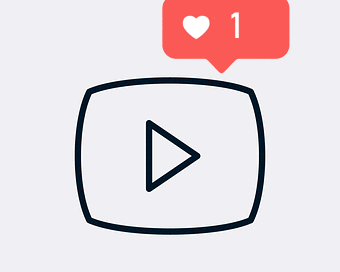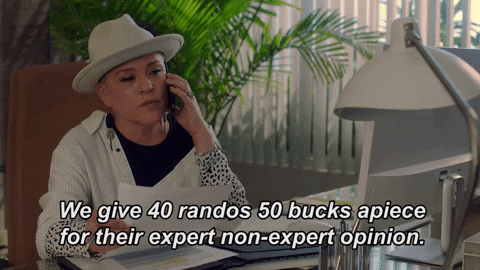So… here I am, on the second Monday of this Spark-y Substack experiment, and I just have one question (bet you can’t guess what it is):
Why don’t we let it be fun?
Last week, the fine folks at Substack had a Q&A session for newbies like me. As you might imagine, it was full of a lot of how-to kinds of questions, chief among them, “How do I get more subscribers?”
This is a totally legit question. I’d be lying like the proverbial rug if I said I haven’t wondered the same thing. (Look! Here’s a box asking you to subscribe!)
That’s natural, right? Well … sort of. It makes me uneasy, though.
Part of why I suspect it’s not entirely “natural” is that it perpetuates the most pernicious idea social media (among others) has written into our DNA—that our worth is tied to how much other people seem to “like” us, whether that’s by telling you to your face or hitting a social media button or subscribing to your Substack.
At this point, I wonder how many of us are even capable of hearing, or understanding, that our worth is inherent, and has absolutely not a single damn thing to do with what anyone else thinks of us. I bet it’s not many, because asking most people to believe that is like asking them to swim upstream.
I’ll repeat it just in case anyone out there needs to hear it as often as I do:
YOUR WORTH IS NOT TIED TO WHAT ANYONE AT ALL ON THIS EARTH THINKS OF YOU. NOT THAT PERSON. NO, NOT THAT OTHER PERSON, EITHER. OR THAT GROUP THAT EXCLUDED YOU. YOUR WORTH IS INHERENT. IT EXISTS BECAUSE YOU DO, AND NO ONE CAN TAKE IT FROM YOU UNLESS YOU LET THEM.
Phew. Okay. (Yeah, those last four words are really important, but we’re gonna save them for another day.)
Here’s the other thing that bothers me about questions like “How do I get more subscribers?” They take something that should be about free creative expression and turn it into work—specifically, into a numbers game. A chore, even. It’s sort of like deciding to build your own hamster wheel for fun, hopping on, and after a couple of years, trying to figure out how you got stuck on this thing in the first place.
It also reminds me of people on Quora who have asked me questions like what kind of software they should use to write their novel (which software do you like? Use that), or what font they should write it in (which font do you like? Use that), or how many pages a chapter should be (how many pages does it NEED to be? Write that).
These questions are understandable from people who are just starting, because they don’t know what they don’t know—but they also miss the forest for the trees. The object of writing is writing, not getting hung up on details that literally make no difference to whether you write or not. These questions presuppose that there’s some magical formula that will ensure success when the only thing that will make you a successful writer is putting words on the page.
They’re the kind of magical thinking that keeps you from reaching your goal (or, in some cases, is probably designed to keep you distracted so you don’t actually write anything at all).
In a way, “How can I get more subscribers” feels like one of those questions. Subscribers are important, but it seems to me that the more important thing is to write what I’m here to write and send it out.
When we primarily do what we do to please others rather than to bring forth the energy, wisdom, and magic that is uniquely ours, our odds of pleasing anyone drop dramatically.
I know some people are hoping to earn a living from their writing, and I get that money is important. I’m not sure, though, that putting income first is the best way to make it happen in an environment like this. I suspect being myself and focusing on writing what I came here to write is more likely to win me an audience, though certainly participating in the community, building connections with other writers, etc. etc. cannot hurt. But when we primarily do what we do to please others rather than to bring forth the energy, wisdom, and magic that is uniquely ours, our odds of pleasing anyone drop dramatically. (If you’ve ever seen a movie that was changed for the worse by a focus group’s input, you know what I mean.)
A lot of the responses to the subscribers question mentioned being “consistent” and letting your audience know to expect to hear from you on X day every week, or so many times a month, or whatever. I’m sure there’s data to back up the idea that that sort of regular posting helps build an audience/subscriber base.
The thing is… I’d just been wrestling with this very thing before I read all this, because now I’ve posted three times in a week. I had only planned to post twice: once to start the week and get this ball rolling, and once for the new podcast episode. I didn’t expect to find a poem coming out of my head when Sinéad O’Connor died. I didn’t expect to post it the next day. I did because it was there, and why not?
Now that I’ve done the first week this way, though, there’s the temptation to fall into the very human trap that says that every week should be this way. That I’ve set myself up with a schedule and now it must be followed.
Should
should
must
must
have to
need to
gotta do the thing…
How does your body feel as you read that? You may not have even noticed, but if you pay attention now, you might be surprised at what you discover. Mine feels tight and uncomfortable.
There are undoubtedly people who would feel really reassured about setting that kind of schedule. But reassurance doesn’t feel like the tightness and pressure I felt in my gut at the thought of it. And that tightness and pressure is a sign that, nope, this is not how I should be doing this thing.
I started The Spark as an experiment to encourage myself to write more, and to share that writing. To follow my own curiosity. The Spark is not my job. It’s not a work assignment. It’s a curiosity-based adventure. It really, really does not want to be, or become, a taskmaster. It’s not my brand-new hamster wheel.
But boy, is it tempting to turn it into one, which brings me back to my opening question: Why don’t we let it be fun?
Humanity (or at least the Western world and those cultures influenced by it—there are still some that are blissfully immune) has been hard at work trying to turn its glorious, imperfect, organic nature into machinery since the Industrial Revolution. It’s made most of us miserable, if not sick.
“It is no measure of health to be well adjusted to a profoundly sick society.”
Sinéad quoted Indian philosopher Jiddu Krishnamurti in a comment in the New York Times two years ago: “It is no measure of health to be well adjusted to a profoundly sick society.” And yet, we continue to adjust ourselves to a dysfunctional, mechanistic society rather than adjusting the society to the realities and imperfections of being human. And then (if we’re lucky) we wonder why we’re not having fun.
In fairness, structure can be helpful—and structure and fun are not definitionally at odds with one another. Creative folks in particular can benefit greatly from structure, because it helps to train the creative brain to do its thing, but we resist it LEIK WOAH, as the kids say, because we think “structure” = “being told what to do.” I’d also be lying if I said I’m not aware of the possibility that coming up with a dedicated publication schedule could actually work really well for me. (It could! It could be great. I put out a podcast on the same day every week, after all.)
The challenge is to ride that very fine edge between “structure as a helpful tool on this fun adventure” and “structure as a prison/chore.” As soon as things teeter into “chore” territory, most people start to resent doing them and the magic is almost certainly not long for this world. It’s difficult, if not impossible, to have fun doing something you resent.
Odds are good you know exactly what I’m talking about. Where have you fallen into the trap of mechanizing the things you love? Have they become chores? If not, is there a danger that they will? Does this resentment ring a bell? If so, what can you change? Feel free to share in the comments—just getting it out of your head and into words may help you see things differently.
I’m not interested in turning myself into a content mill for the sake of being a content mill. I’m not a performing monkey. (Every office job I’ve had sure has wanted me to be, and that’s plenty, thanks). I want to write the things that call to me to write them, not things that will fill the gaps to keep an artificial structure happy. That said, those things could eventually start coming on more of a schedule than I can anticipate right now.
Will I adopt a structure for The Spark at some point? Maybe! Maybe not. We’ll see. There’s a little structure built in since I’ll be letting you know about the new pod episode each Wednesday. Beyond that, though? Time will tell. Stay tuned!











I needed to read this - thank you!
Hey Nancy read the article and commented. Love your perspective.